Dec 27, 2017
How to Make Chili in Japan
This one goes out to any of my brethren from the southwest, or anyone who likes chili, especially if they also hate winter.
I know how it is. You see someone from home post about the sunny weather, wearing a t-shirt and shorts, smiling on social media, and that humid chill of Japanese winter taunts you from beyond your walls. Soon, a sad shiver may shake a tear loose, and then the game will be over. Winter will have won.
Sorry to be over-dramatic. I really hate this season.
Even if you don't, if you'd like to take a stab at making the meat dish made popular by cowboy movies and southern to southwestern American cuisine, look no further. I make it all with stuff acquired in Japan, mostly from my local grocery store.
Ingredients and procedure:
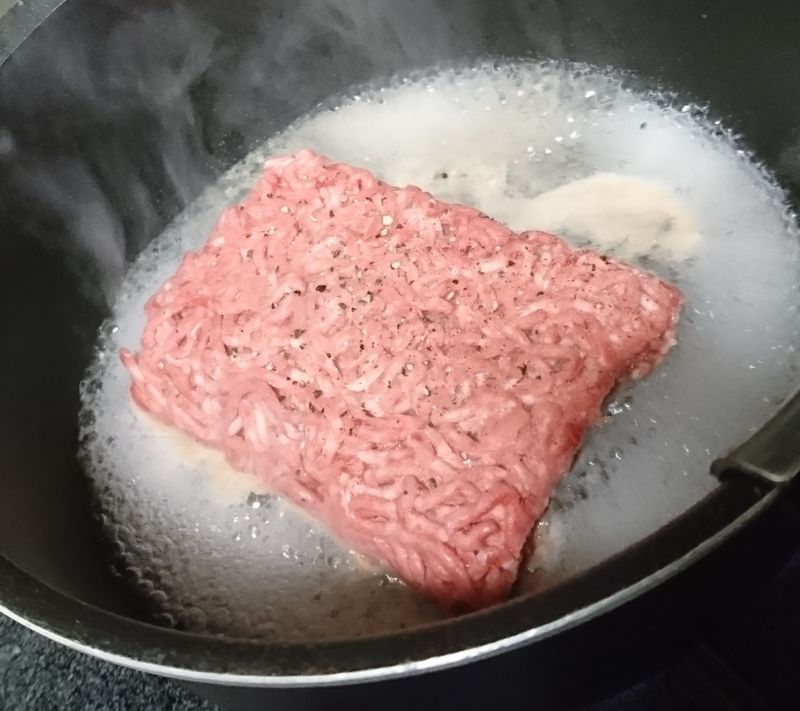
Meat: At least 200 grams of menchi or ground meat. I prefer the beef and pork mix and beef alone is not available where I live, but any menchi will likely suffice. Frozen menchi can be used, but make sure to let it cook before you add the other ingredients to ensure no frozen chunks persist. In the picture above, my frozen menchi chunk is being thawed/cooked in lightly boiling water. If you do this, pour off any remaining water when the meat is nice and browned. If you're using fresh menchi, get it around half browned before you add the onion and garlic.
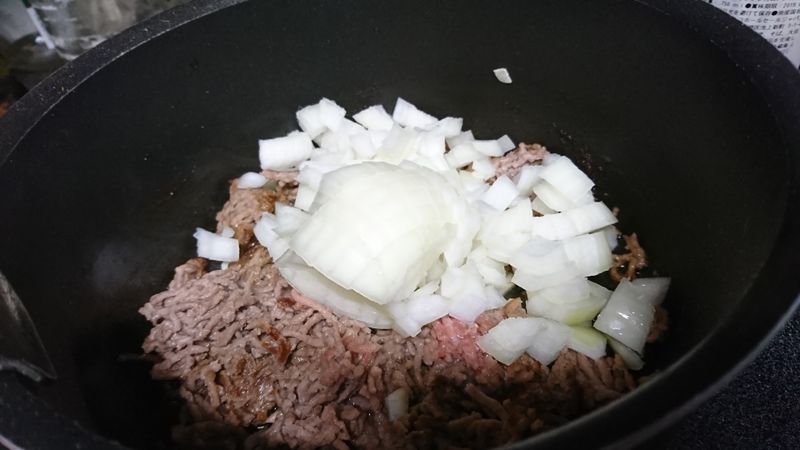
Onion and Garlic: 1 medium onion, diced, and 1-2 cloves of garlic, diced. These make a big difference in flavor when fresh, but if all you have is granulated garlic and dehydrated onion bits, those are better than nothing. When the onion starts to look a bit translucent, add the tomatoes.
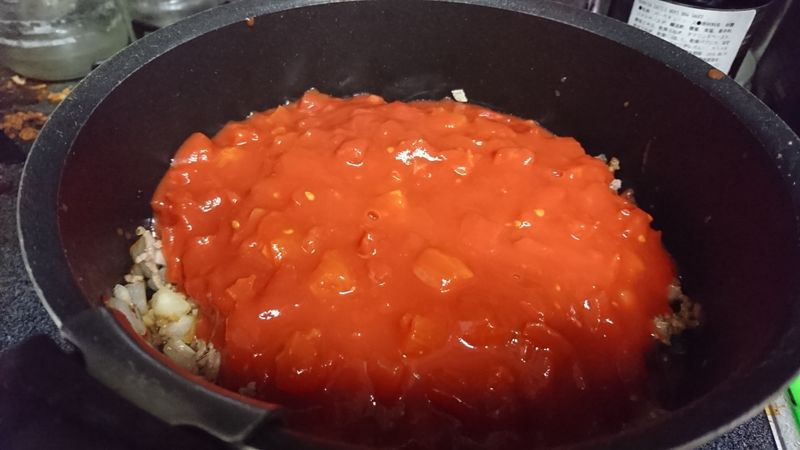
Tomatoes:
2 cans of diced tomatoes. This is the quickest and easiest way, though you can also gather 3 large tomatoes and dice them if you prefer. I used to do this with only one can, which is possible, but I found two stretches the food budget a little further and helps my tomato-loving husband better enjoy the meal.
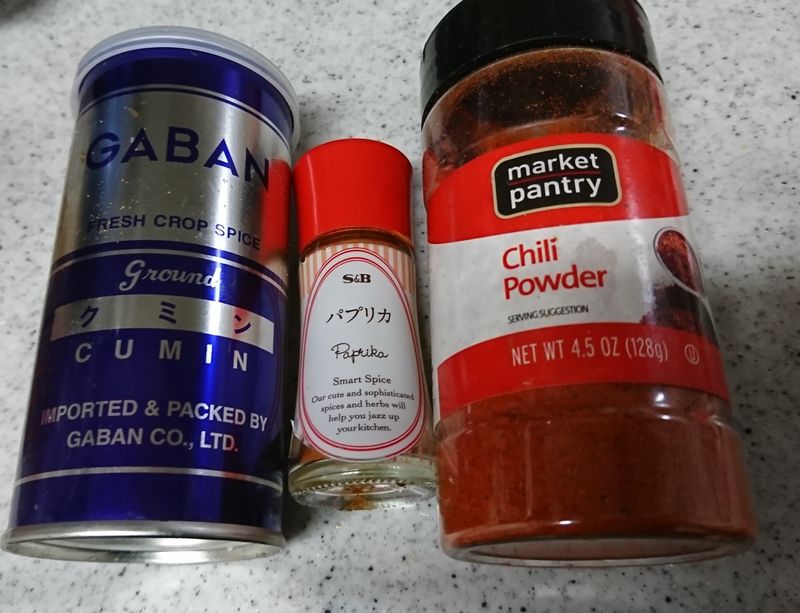
The Market Pantry brand is from target in America, yes, but I have refilled it with chili powder acquired on amazon.co.jp.
The normal course of dry ingredients I utilize are salt, pepper, chili powder, paprika and cumin, though you can also use a chili seasoning packet from your local import store. I have never measured the amount of dry ingredients I use.
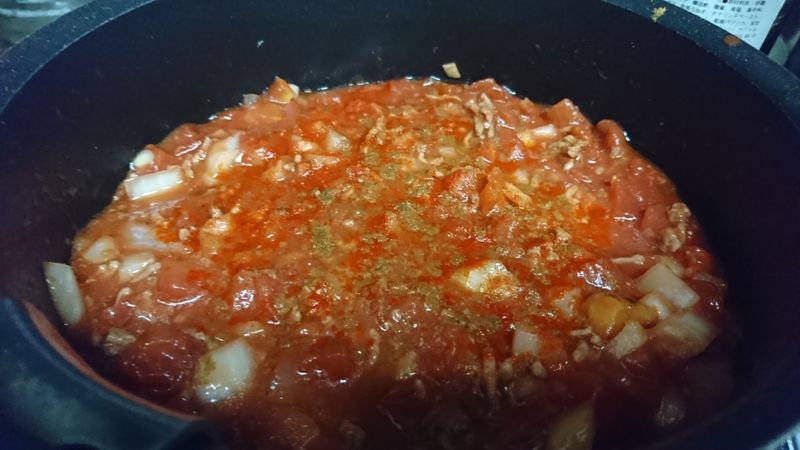
The red powder coating is chili and paprika. The brown, cumin.
Instead, I sprinkle a coat of salt, pepper, and cumin over the cooking chili and mix it in. Unless you absolutely love spicy food (I don't), use the chili powder in smaller dashes, no more than half a teaspoon at a time. Then taste and adjust as necessary. Remember you cannot remove the dry ingredients afterward, so if you went overboard on the chili powder and can no longer enjoy the resulting concoction, try working in some more tomatoes or meat to dilute the impact.
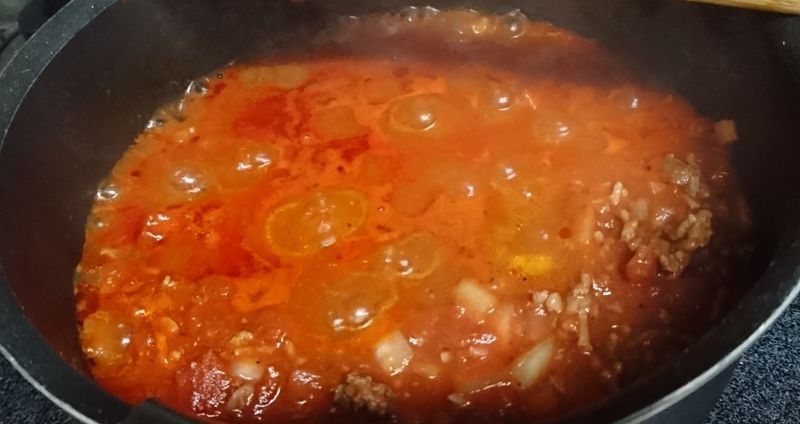 Once all of this is in and the chili is cooking, you're going to have to let the tomato juices reduce a bit, which means around 40 minutes to an hour of walking away and coming back to stir the thing every 5-10 minutes. Cooking it on the highest heat setting will evaporate the liquid faster, but you'll have to pay close attention not to burn the meaty bits at the bottom. I prefer a medium-heat overall.
If bubbling is happening, as in the picture above, a quick stir is a good idea.
Once all of this is in and the chili is cooking, you're going to have to let the tomato juices reduce a bit, which means around 40 minutes to an hour of walking away and coming back to stir the thing every 5-10 minutes. Cooking it on the highest heat setting will evaporate the liquid faster, but you'll have to pay close attention not to burn the meaty bits at the bottom. I prefer a medium-heat overall.
If bubbling is happening, as in the picture above, a quick stir is a good idea.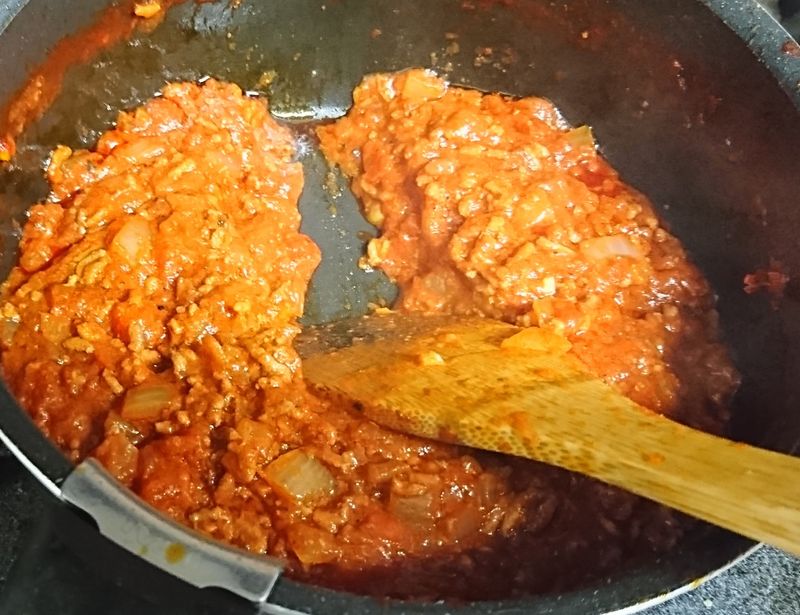
When is it done? When you can scrape a wooden spoon across the bottom of your pot and the sides stay separated. If the sides ooze together within 3 seconds, more reduction needs to take place.
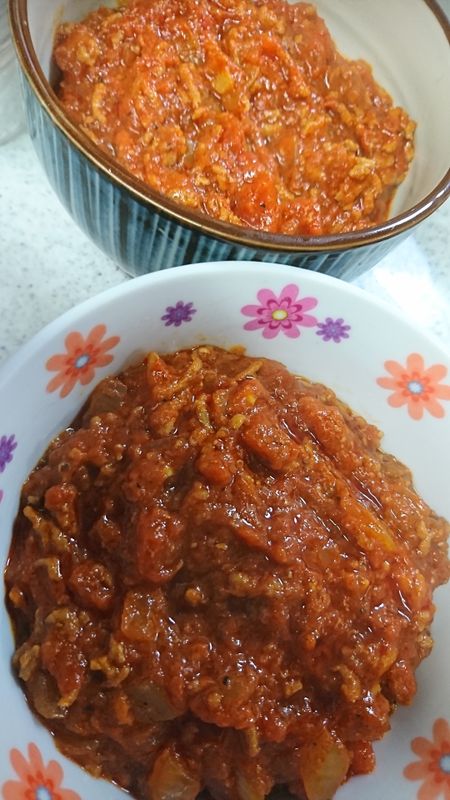
Serve in bowls or on chili dogs or nachos as you like.



2 Comments
Yuju
on Dec 28
Looks really yummy :)
JTsu
on Dec 31
@Yuju Thanks!